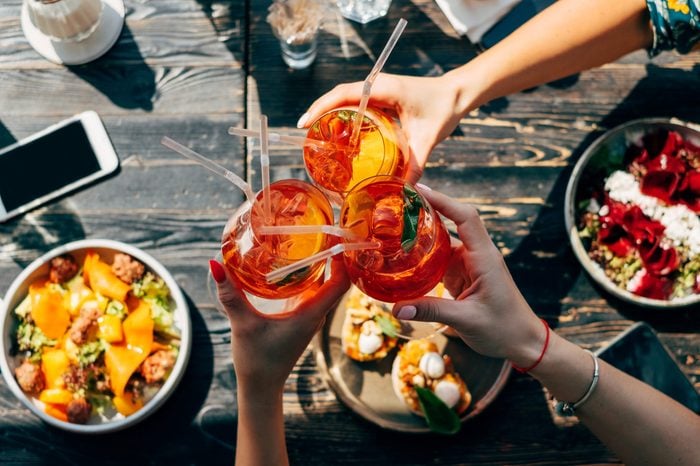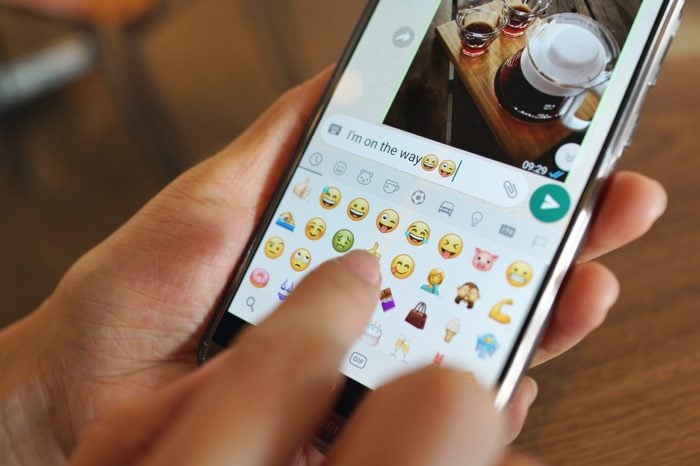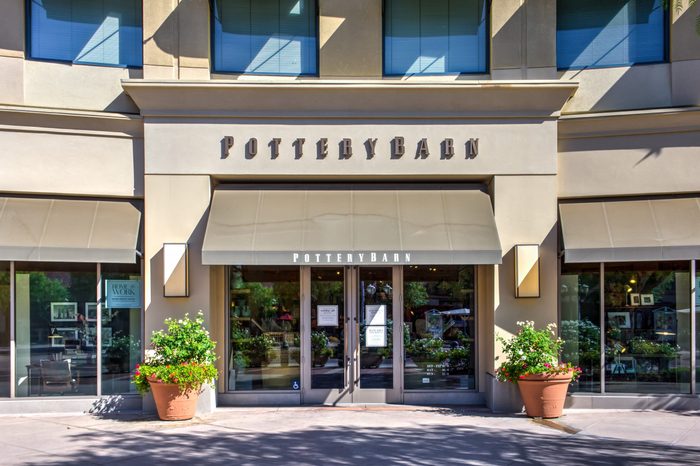
Why does everyone dump on millennials?
Poor millennials. They have the reputation of being lazy, self-obsessed, aimless, and, well, just plain useless. Of course, these same criticisms have been leveled against pretty much every up-and-coming generation before them. But are these recent claims justified? We asked cultural and economic experts to weigh in, and looked at surveys and research examining socioeconomic trends in the millennial generation, to find out. “It’s typical for millennials to get the blame for cultural and economic changes,” says Miron Lulic, founder and CEO of SuperMoney. “In most cases, their only crime is [behaving] like everybody else.” Some millennials may be doing even better, though: These millennial entrepreneurs started with nothing—and made a fortune.
First, let’s establish exactly who millennials are. According to the Pew Research Center, millennials (also sometimes called Generation Y because they followed Generation X) were born between 1981 and 1996, making them between 23 and 38 years old in 2019. Millennials are followed by what’s now being called Generation Z.

The poor economy
Millennials have been blamed for tanking the economy, but in reality, they simply inherited tons of economic problems that began well before they came on the scene. The Great Recession, which lasted from 2007 to 2009, occurred when the average millennial was just starting out in the workplace. This burst of the housing bubble and drop in the stock market caused a loss of jobs and a sluggish recovery that millennials then had to bear the brunt of. “Income growth in the last 45 years has been modest among all age groups, but the income of adults of ages between 25 and 34 has not changed at all,” Lulic says.

Debt creation
While it’s true that millennials have huge amounts of student debt, they can’t really be blamed for it. “The cost of education, inflation-adjusted, has more than doubled in the last 45 years,” Lulic says. With four years of college costing around $100,000, most households can’t afford to pay that with savings. “More than half of families, 53 percent, needed loans to pay children’s undergraduate education,” he says. The result is that student loans are the fastest-growing source of debt for U.S. households, he says.

Killing manufacturing jobs
Well, it’s not like millennials have to go to college, right? Unfortunately, college is expensive but needed in order to get a job if they want to make a living wage. This isn’t due to millennials themselves, but rather global advances in technology and automation that are transitioning our economy from manufacturing to knowledge-based, Lulic says. “The economy puts a higher value on a worker’s knowledge and intellectual capital, which requires time to develop and typically means having a college education,” Lulic says. The decline in demand for unskilled labor means that millennials with only a high school degree are actually earning less at age 25 (median income of $29,000) than Gen X and Baby Boomers did.

Being too lazy to get a job
It’s not that millennials are too lazy to get jobs—it’s just that it’s harder to get one. This also contributes to staying at home longer. “Among the older millennials, say age 25 and older, the increase in living at home has mainly occurred among millennials who have not completed a bachelor’s degree,” Pew Research Center senior researcher Richard Fry says. “For decades, the typical earnings of less-educated young adults have been declining, so it is likely increasingly unaffordable for these young adults to live independently.” Millennial or no, you’ll want to steer clear of these 18 jobs that might disappear in the next 25 years.

Job-hopping
Millennials who do have jobs are often seen as not sticking with the same employer for long, but that’s actually not true. “Millennials have a reputation for [a] bad work ethic and not being loyal employees who are constantly job-hopping; however, research by the Pew Research Center shows they are changing jobs just as frequently as Generation X workers did,” Lulic says. And they’re particularly dedicated to their jobs: “Research by the U.S. Travel Association revealed that older Americans take more time off than millennials,” Lulic says. (But millennials still can’t win: Now they’re being accused of “killing” vacations because they work too hard.)

Less homebuying
Another reason for millennials’ failure to launch is that houses are just too expensive to buy, or even to rent—so you can’t really blame them for wanting to save their hard-earned money. “The demand for homeownership is there, but they can’t afford to buy,” Lulic says. “Income growth in the last 45 years has been modest among all age groups, but adults with ages between 25 and 34 only make $29 [a year] more today than in 1974 if you take into account inflation.” Compare that with the huge increase in housing prices in the same time period (about 39 percent in the last 45 years), and no wonder they can’t afford it, he says.
The inability to afford housing is, not surprisingly, especially true in expensive markets. “Studies have shown that the metro areas with the greatest percentages of young adults living at home tend to be metros with the highest rents, suggesting that affordability of housing is an issue,” Fry says.

Not leaving the nest
The final reason millennials have been accused of living with their parents past the time when previous generations had moved out might also be related to their education—but not in the ways you think. “Among the younger millennials, more of them are enrolled in college,” says Fry. “We tend to think of college students as living in dorms, but many of them live at home. So more pursuit of college has resulted in more living at home.” Millennials are, in fact, the most educated generation.

Adults not knowing how to “adult”
Millennials seem to “stay kids” in other ways, too; the stereotype is that they lack basic skills and still rely on their parents to do everything for them. If there is some truth to this, it has to do with how they were raised—so blame their parents! “It’s not millennials’ fault that now they ended up in a situation where they’re not taught things—it’s the generation who created them,” says Rachel Flehinger, principal of the Adulting School in Portland, Maine, which teaches twenty-somethings life skills like meal planning, home repair, and personal finance. “There are still parents who are not letting their children do [things] for themselves.”
Plus, there’s always a learning curve to develop these skills when you get out on your own, which for millennials is simply happening later. “With every generation, the generation before them has always said, ‘They’re lazy,'” Flehinger says. These are the 34 life skills everyone needs to master to be a grown-up.

No more fancy dinner parties
Some lament the death of the perfect 1950s dinner party: pot roast in the oven, the swish of full skirts, the tinkle of ice in cocktails. But this image might be a fantasy anyway. “Of course millennials aren’t the only people not having dinner parties,” says culinary historian and Root Kitchens founder Julia Skinner, who says she’s heard from Gen Xers, Boomers, and even Greatest Generation members who said they never had dinner parties either. Plus, it’s not that millennials don’t have dinner parties; it’s just that what these parties look like has changed. “There’s a much bigger emphasis on being with people you love and being able to relax and enjoy each other’s company, rather than on having the right dishes and spending all day cooking,” Skinner says of the more casual gatherings millennials favor. “Connecting with others over food is something innately human, and something we all do regardless of what generation we come from.” These are the 35 absolutely essential recipes everyone should know before they turn 35.

Ruining Thanksgiving
Is it possible millennials are deciding to spend the holiday with people they actually like—their friends—rather than suffer through another dysfunctional family Thanksgiving? Enter Friendsgiving, which some say takes away from the traditional meal. “I think it’s adding to tradition, rather than taking away—assuming everyone has a traditional Thanksgiving to go to assumes that everyone has a traditional family and that they have a good enough relationship with that family to attend a holiday meal,” Skinner says. “Friendsgiving or other alternative gatherings provide a space for people to gather with others and feel included in celebrations, rather than sitting at home alone. I know more and more people who opt for these sorts of gatherings, from every generation.” People living on military bases, people who are not welcome at home, or those from abusive families benefit from having somewhere else to go, she says. If you want to try it, find out tips for hosting a thoughtful Friendsgiving dinner.

The popularity of brunch
Although it’s hard to imagine who doesn’t like brunch, there are some who deride it as now too trendy or “hipster.” But, “brunch has been around since well before millennials were born,” Skinner says. Today, though, its popularity might because it’s a more affordable option for cash-strapped millennials than dinner, “which means people can go out and have something nice, but not break the bank,” she says. In addition, “in my experience people like it because it can be fit between other activities—an hour or two with friends before you go hiking, or run errands, or go to work.” Find out the 10 things chefs never order at brunch.

Everything organic
People roll their eyes at millennials’ preoccupation with organic, farm-to-table food, as if their financial difficulties should mean they eat only ramen noodles. Skinner says millennials’ food choices are a way to exert control over one aspect of their lives—and isn’t eating local organic food better for our health and the environment anyway? “It’s much more financially accessible to make informed choices about food than it might be to improve your quality of life through other means, like renting a bigger place or having a more reliable car,” she says. “Even food choices that cost somewhat more than others, such as buying organic, are still more within reach for folks with limited means. It’s much easier for someone to say, ‘Hey, because I am concerned about supporting local farmers, I’m going to buy from them and improve the quality of my life in that way’ than to say, ‘I want to improve my quality of life, so I’m going to rent a larger apartment.'”

The avocado toast trend
Avocado toast is the perfect case in point to illustrate millennials’ changing food choices. It’s a relatively cheap (no, if millennials stopped eating it they couldn’t afford a house), healthy, and filling breakfast that’s ready in ten minutes or less. So what if it’s now a thing? “It’s a food that people eat and that’s somewhat popular right now, but the food itself has turned into a representation of what non-millennials argue is wrong with that particular generation,” Skinner says. “The number of times that I’ve heard, ‘Well, if you stopped eating avocado toast, you’d be fine!’ is very interesting to me, because it ignores people’s lived experience and financial realities, and seems to provide some sort of shorthand for a person saying they don’t agree with or understand certain choices or trends they’re seeing.”

A smaller next generation
While it’s true that millennials are getting a later start in establishing their own households and families (which, again, isn’t really their fault), “it is too early to know what the completed fertility of millennials will be, given that the youngest millennial is only 23 years old,” Fry says. So far, though, it does seem that there’s a downward trend: “Last year about 45 percent of millennial women were childless; in 1989, 36 percent of Boomer women at the same age were childless,” Fry says. This could lead to slower population growth, slower labor force growth, and slower economic growth in the next generation, he says. But, research has found that having one fewer child is actually the most effective way of reducing your carbon footprint, so fewer children is not without environmental benefits. Find out some used-to-be-everyday products that the children of millennials will never use.

Addiction to technology
Sorry, older generations: The global trend of technology is here to stay. And while we might think that millennials’ seeming addiction to looking at their phones all day is a bad thing, the younger generation disagrees. “In a 2018 Pew Research Center survey, 73 percent of millennial internet users said the internet has been mostly a good thing for society, compared with 63 percent of users in the Silent Generation [born 1928-1945],” says Monica Anderson, Associate Director of Research at the Pew Research Center. “And when asked about the internet’s impact on their own lives, 90 percent of millennials described its impact as positive.” Boomers and Gen X, meanwhile, have also rapidly adopted new technology along with their millennial counterparts.

Selfie obsession
With this digital explosion has come some backlash against the proliferation of selfies and the Instagram-worthy lifestyle millennials seem to flaunt. (But actually, millennials didn’t even invent selfies—this guy did.) In reality, these social media trends just reflect the growing value of experiences over possessions and a shift away from materialism. “All age groups are opting out of accumulating stuff and investing more in experiences,” Lulic says. Plus, “the truth is, millennials have similar consumption tastes to older generations; they just have less money to spend on them.” Once you have a cell phone, posting photos on Instagram is free. Find out the best city to live in for every generation.

Self-obsession
Even if millennials are selfie-obsessed, they’re not actually self-obsessed, and they navel-gaze a lot less than people think. Instead, millennials actually very concerned with social issues and giving to causes they care about. “Millennials as a generation are more socially involved—they will send money where that money gives back; they know about causes, they care about them, and they will actually do things to be involved in them,” says Flehinger. Millennials’ spending habits are “not always as frivolous as people would think,” she says. “They are just putting their attention elsewhere.” Here are powerful ways to give back without breaking the bank.

Emoji language and text abbreviations
As we’ve said, millennials aren’t responsible for the global trend of technology, which has made huge strides over the past 50 years. Language has also always evolved, and millennials aren’t the first generation to come up with slang; it’s just that now, due to technology, slang is in the form of acronyms, GIFs, and emojis, which themselves have a fascinating history. And although Time reported a Harris poll showing millennials are most comfortable using visual language over phone convos (68 percent), older adults were no slouchers either, with over a third (37 percent) saying they prefer it as well. TBH, this trend is here to stay, as evidenced by Merriam-Webster including the abbreviation “TL;DR,” along with other slang words you didn’t know were in the dictionary.

Pottery Barn’s declining sales
Every time a certain brand or industry’s sales go down, including higher-end home goods store Pottery Barn, millennials get the blame. Why? It seems that their furniture is just too big. “We know that the opportunity is often size, because as people move to smaller living arrangements and the urbanization happens, the large-scale furniture is difficult,” said Laura Alber, chief executive of Williams-Sonoma (which owns Pottery Barn). But as with any business, the company simply adapted with a new “Small Spaces” line, and successful sister brand West Elm is building e-commerce opportunities to reflect growing online marketplace trends among all age groups. Millennials will want to know the 12 secrets to entertaining in a small space.

The rise in vaping
It’s true that vaping, or using electronic cigarettes, has grown among young people, but Generation Z may be a major culprit: A recent survey showed the number of vaping high school students has doubled in the last three years. In another recent poll, millennials appear split: 20 percent of people 18 to 29 said they vape, compared to eight percent of people 30 to 64. In any case, part of the rise in vaping is due to older adults marketing e-cigarettes to young people: Almost a third of high-schoolers said they used e-cigarettes because of their fruity flavors. Next, take our quiz on just how millennial are you?
